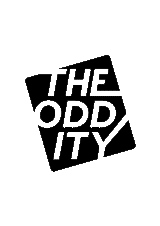Why is Fish Collagen better than Bovine or Porcine Collagens?
Mar 03, 2022
A wide range of collagen products are available on the market, but not all collagens have the same source, nor are they suitable for certain types of dietary requirements. Many collagens are sourced from livestock production (beef, pork, chicken), while others come from marine sources (fish, shellfish).
Evidence on why fish collagen is better than beef or other animal collagens is detailed below.
Fish Collagen has a higher level of bioavailability
Fish Collagen peptides have been proven to be 1.5 times more easily digested, absorbed and distributed throughout the body. This means marine collagen is more efficiently assimilated into the body and shows superior bioavailability over collagen from bovine or porcine sources.
Type I Collagen
Marine collagen is mostly a Type I Collagen, which is the most abundant collagen in the human body. This type of collagen is well-known for being the main collagen in bones, tendons, ligaments, the cornea and in many connective tissues. Type I Collagen makes up 85% of human skin, with Type III Collagen accounting for the remaining 15%.
Fish collagen is rich in amino acids
Fish collagen is rich in glycine, proline and hydroxyproline amino acids. These amino acids are better absorbed by the human body when compared to other collagen types. They stimulate cells in the skin, bones and connective tissues, while aiding the production of new collagen. Marine collagen sourced from wild-caught, deep-sea fish skin also has a higher content in essential amino acids when compared to other fish or animal collagens.
Fish Collagen is better for the environment
Wild fish is a low carbon footprint foodstuff.
Between 1kg and 5 kg of carbon is needed to produce every 1kg of caught wild fish. By comparison, red meat production is estimated to require between 50 and 750 kg of carbon per kilogram of meat.
Beef or porcine by-products for collagen use are more than abundant, however the livestock sector plays a significant role in climate change.
The production of wild-caught, marine collagen peptides accounts for a smaller carbon footprint than beef or porcine collagen peptides.
Fish collagen is an excellent addition to most diets
Marine collagen is a viable alternative solution for pescatarians who do not red or white meat, and who are therefore unable to enjoy the health benefits of standard collagen supplements. Oceancoll is a sustainable marine collagen derived from fish skin that is suitable for pescatarians. It is an excellent supplement for the majority of dietary options, including the Paleo diet.
Our marine collagen is manufactured in a food-production facility that solely manufactures fish collagen, and where neither bovine nor porcine collagens are processed. Any potential cross contamination is therefore avoided, while also making our collagen raw material a Halal, Kosher and MSC-certifiable product.
